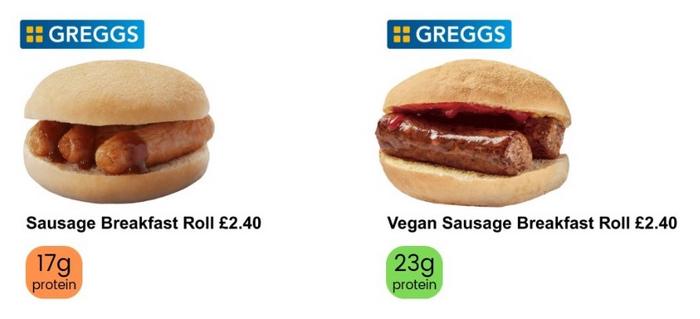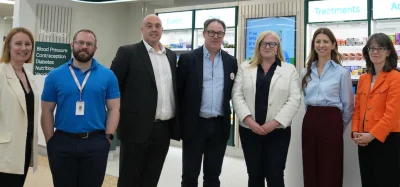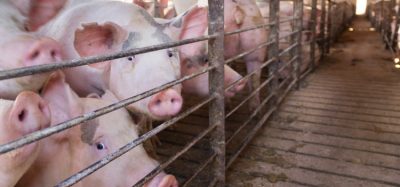Cambridge scientist shares labelling strategy to Greggs stakeholders to accelerate plant-based uptake
Posted: 30 September 2025 | Ben Cornwell | No comments yet
A Cambridge researcher claims Greggs could more than double sales of its vegan sausage roll by highlighting protein content, not carbon labels.


Potential Greggs protein label examples. Credit: Dr Chris Macdonald
Greggs could more than double sales of its Vegan Sausage Roll and boost uptake of other plant-based products, according to a new study.
The study published in Frontiers in Sustainable Food Systems demonstrates that a “nudge by proxy” approach, which highlights consumer priorities such as protein content, significantly outperforms traditional carbon footprint labelling in encouraging customers to choose plant-based meals.
The research, led by Cambridge scientist and Director of the Better Protein Institute, Dr Chris Macdonald, tested the method with 3,000 participants. By flagging protein levels on meat-free options, the team achieved a majority switch to plant-based choices.
Dr Macdonald explained:
People often think that their own beliefs and values are more common than they actually are. This is called the false consensus effect. Accordingly, researchers who are also environmentalists might tend towards interventions that highlight negative environmental impacts because it is what influences them, and they may assume that it will be equally persuasive to the average consumer. I call this the environmentalist bias.”
Overcoming the biggest barrier for consumers
Instead, Dr Macdonald engaged directly with consumers before designing the intervention. An initial survey of 1,500 respondents found that protein was the most significant perceived barrier to eating meat-free, a misconception he terms the “insufficiency illusion.”
That insight informed the creation of a simple protein label. For many, it may come as a surprise that the Greggs Vegan Sausage Roll, and its breakfast roll range, contain not only fewer greenhouse gas emissions and lower fat than their meat-based counterparts but also more protein.
Highlighting this protein content shifted an unprecedented number of consumers towards meat-free choices, the study found. In the second experiment, less than a quarter of participants in the control group selected a meat-free meal compared with more than half of participants shown the protein label. This increase of more than 100 percent was consistent across men and women, making the meat-free option the majority choice for the first time and marking what the researchers described as an “unprecedented step-change”.


Experiment data. Credit: Dr Chris Macdonald
Open letter to Greggs executives
Dr Macdonald has published his findings in an open letter on social media and written directly to Greggs executives, including CEO Roisin Currie and Head of Sustainability Paul Irwin-Rhodes, offering to collaborate.
He concluded:
At the Better Protein Institute, we are committed to turning research into tangible impact. In service of this, I have shared the results with Greggs, and I have also offered to collaborate with them, and they have my contact information. They have a unique opportunity to not only increase sales but also cement themselves as leaders in sustainability. The ball is in their court now.
A rising tide of global meat consumption fuels an increasingly dangerous narrative: that changing consumption habits is simply too difficult. My work provides a defiant counter-narrative.”
Related topics
Clean Label, Environment, Free From, Health & Nutrition, Labelling, Packaging & Labelling, Plant based, Proteins & alternative proteins, retail, Sustainability, The consumer, Trade & Economy









